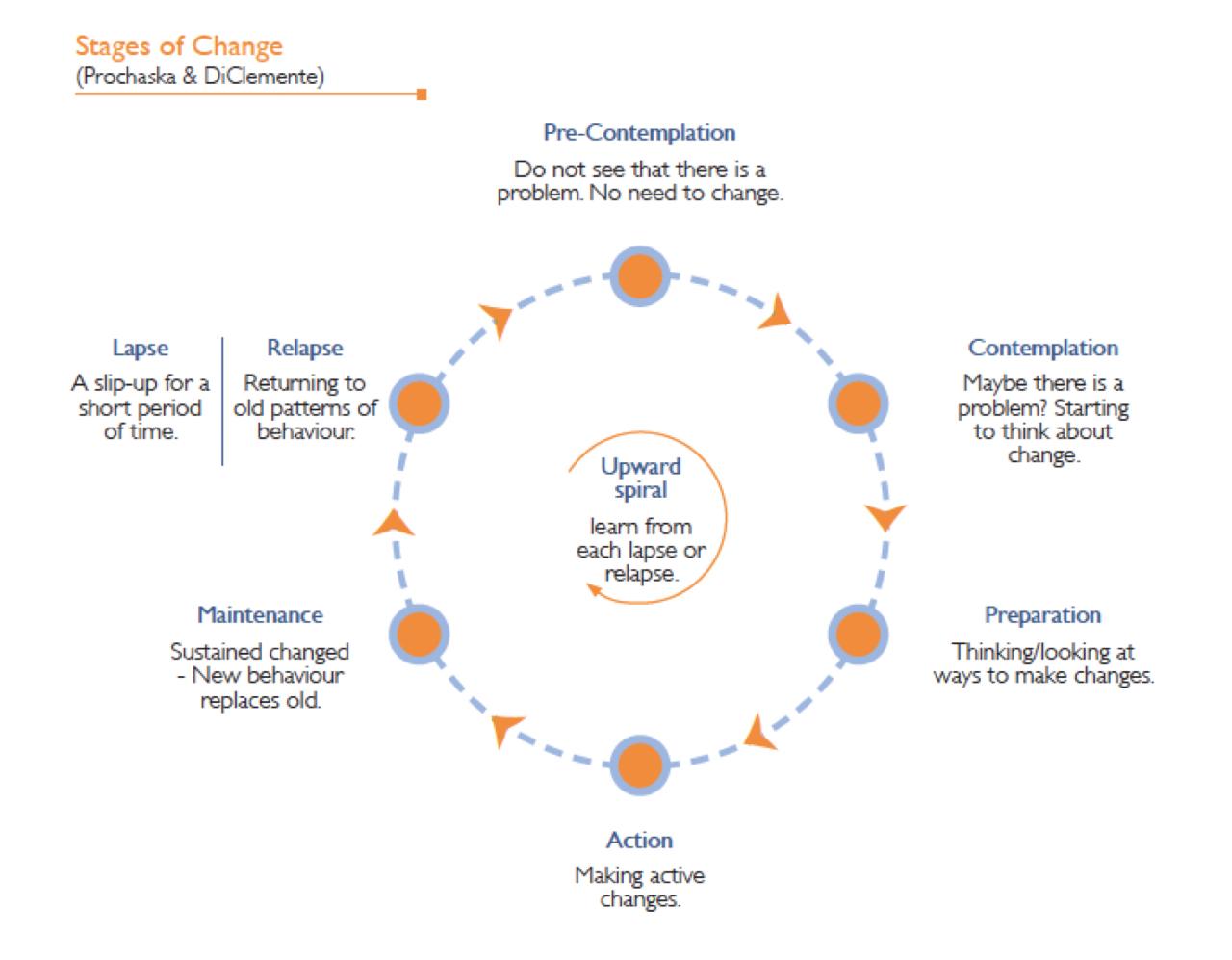Understanding the Stages of Change in Addiction Recovery
Whether you're just starting out or have been on the path to recovery for a while, this model helps make sense of where you are and where you're going.
Posted: 7th July, 2025
Recovery is not a straight line. It’s a journey filled with ups, downs, and valuable lessons along the way. One of the most helpful ways to understand this journey is through the Prochaska & DiClemente’s Cycle of Change—a model that shows the common stages people go through when making a lasting change, like overcoming addiction.
Whether you're just starting out or have been on the path to recovery for a while, this model helps make sense of where you are and where you're going.
1. Pre-Contemplation: “I don’t have a problem.”
In this stage, a person may not yet see their addiction as an issue. They may be in denial or feel like the situation is under control. There's no intention to change—yet.
Key idea: This isn’t failure—this is a starting point.
2. Contemplation: “Maybe I need to change.”
Here, the person starts to think more seriously about the impact of their addiction. They may feel stuck between wanting to change and fearing what that change means.
Key idea: Awareness is growing. This is an important shift.
3. Preparation: “I want to change. How do I do it?”
Now, the person is ready to take steps. They may start researching treatment options, attending support groups, or making a plan.
Key idea: The groundwork is being laid for action.
4. Action: “I’m making changes.”
In this stage, real change happens. The person might enter rehab, stop using substances, build new routines, or seek counseling.
Key idea: Active effort is being made—this takes courage and support.
5. Maintenance: “I’m living the change.”
Here, the new behavior (like staying clean or sober) becomes more stable. The person continues working on their recovery, building healthy habits and support systems.
Key idea: The goal is long-term stability.
6. Lapse or Relapse: “I slipped.”
Sometimes there’s a slip-up (lapse) or a return to old behavior (relapse). It’s important to know: this is not the end. It’s a chance to reflect, learn, and try again.
Key idea: Recovery is not about perfection—it’s about persistence.
The Upward Spiral: Learning from Every Step
Even if someone returns to an earlier stage, they don’t start from zero. Each experience—whether success or setback—teaches something. Over time, progress looks like an upward spiral, not a perfect circle.
Why This Matters
Understanding the Stages of Change helps us:
- Recognize where we are in the journey
- Be patient with ourselves and others
- Know that setbacks are part of the process
- Stay committed, even when it’s hard
Final Words
Change is possible—one step, one choice, one day at a time. Whether you're in contemplation, action, or working through a relapse, you're not alone. Every stage is part of the path toward a better life.
If you or someone you love is on the journey of recovery, keep going. And remember: change is a process, not an event.

